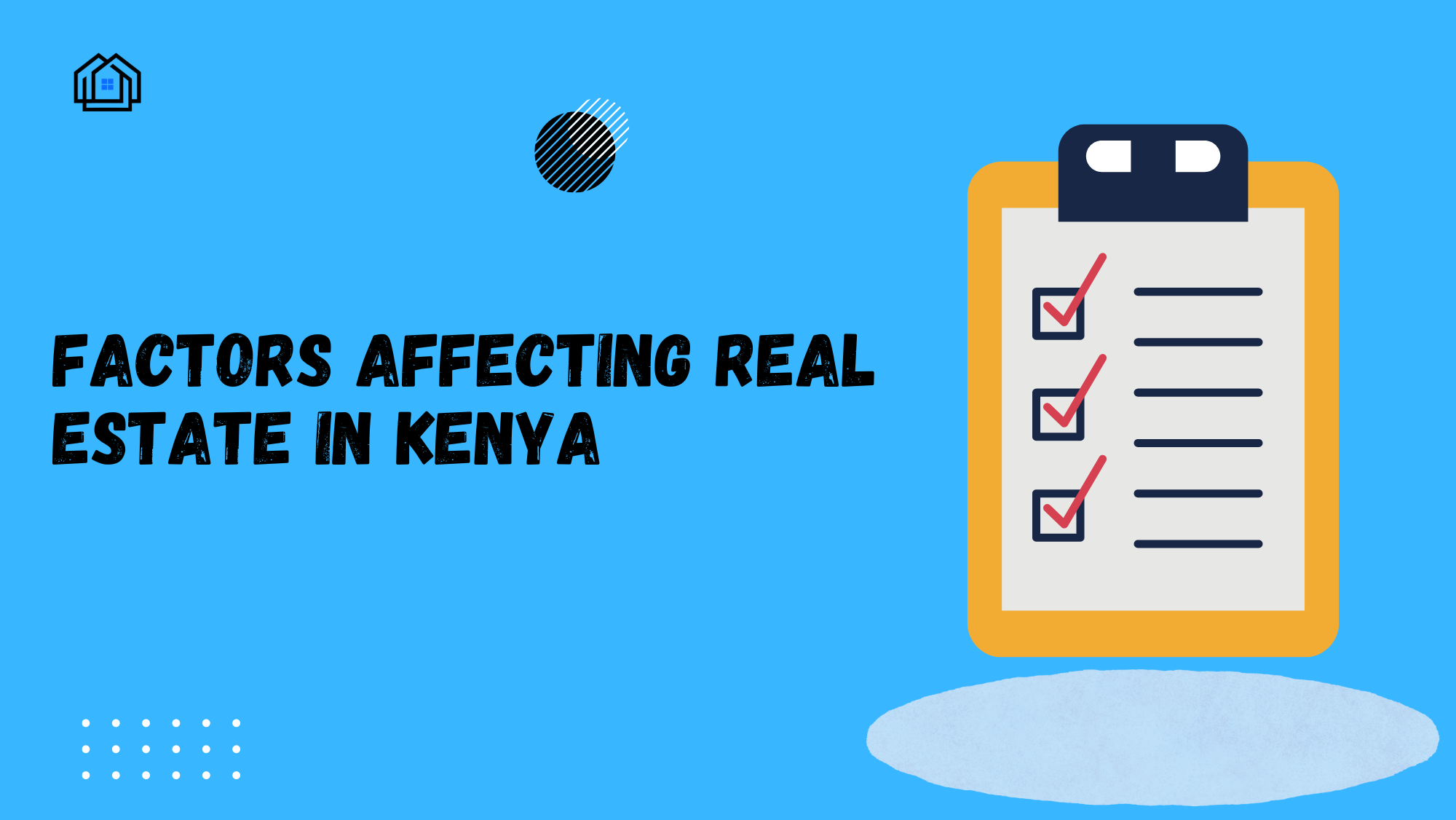Real estate is among the top contributing source of revenue for high-income earners and the government. Besides, it’s among the industries working excellently to bridge the youth’s unemployment gaps.
Noting this, Kenyans have decided not to be left behind, venture into it, and benefit from its merits. It has taken a quick turnout, and within a short time, there has been a constant change, reformation, and moulding of Kenya’s economy.
However, to continue seeing these benefits, note that several factors influence its operations. The factors have both positive and negative effects. Keep reading to understand this!
1. Demographics/ Population
Demographics are very significant when it comes to real estate investment in Kenya. Often, it is overlooked, and many people don’t understand its effect on real estate properties.
It is the composition and distribution of people in a given area regarding age, population growth, gender, income, and migration patterns. You will not build a 10 M mansion in an area encompassed by people earning 30 K or less per month.
Similarly, singles and bedsitters won’t be the best fit for a large family. That shows why a real estate investor has to narrow down to the desired property type by a particular group of people.
2. Government policies
Government policy is yet another influencing factor in the Kenyan real estate industry. EARB, Estate Agents Registration Board, is Kenya’s regulatory and legislative body for estate agency practice.
This body gives directives on the legal housing and property investment requirements that must be followed. Besides, subsidies, deductions, and tax credits from the Kenyan government are some ways that boost or deteriorate real estate growth.
However, being an investor, be aware of all these government policies and use them as a reference in identifying potential trends in the industry.
3. Kenyan Economic Situation
For some years, the Kenyan economy has been ‘dilapidated,’ especially after the Covid-19 pandemic. Like manufacturing activities, employment, GDP, and price of goods, among other sectors affected, so is the real estate industry investment.
However, the effect is usually different from one kind of property to another. For instance, a REIT that invests in hotels is more affected by an economic downturn than one that invests in residential dwellings.
4. Concentration on Foreign Investment
The Kenyan government has been at the forefront of encouraging investors from other parts of the world to set up businesses freely. Positive and negative effects accompany this on Kenya’s real estate industry.
As an example of a positive effect, the investors require housing facilities and office spaces to carry on their operations. This fuels the demand for commercial and residential real estate properties , thus enabling investment.
On the contrary, when the investors are real estate strategists, they bring new designs and housing preferences, and Kenyans embrace them more. This is without knowing that the new designs and preferences are challenging Kenya’s real estate investment.
5. Growth of Towns
The rising Kenyan population has been in tandem with urbanization in different towns and cities. The growth is majorly attributed to the many youths seeking employment daily.
More commercial and residential houses to solve unemployment and housing challenges, respectively, have been built in towns and cities like Nakuru, Nairobi, Mombasa, Kisumu etc.
6. Political Health
As a matter of fact, for a profitable investment, your country of residence should be prevailing peace and political stability. That is when Kenya becomes your ideal investment area.
Most of the time, Kenya has been relatively politically stable and healthy. This has attracted investors from other sectors, including real estate enthusiasts.
7. Kenya Currency Stability
For a long time, the Kenya shilling has had no significant fluctuations that can affect much. It has been relatively stable, acting against major international currencies like the dollar $ and pound.
In turn, massive investors have found it wise to invest in Kenya to benefit from this favouring cash. That has then called for property investment to set up businesses and dwell, thus igniting real estate.
8. Predictable Weather Patterns
It is easy to predict weather patterns from any part of Kenya you come from, especially due to its tropical climate. Besides, different areas experience different seasons in distinct periods of the year.
The anticipation aspect allows the Kenyans to make decisions based on the forthcoming climate. For instance, when drought predicts, many people usually opt to relocate to a new area with green pastures.
The relocation leads to property development in the new area and property investment stagnation in the former area, affecting real estate.
9. Interest Rates
Yes, interest rates are a major influence on the real estate market in Kenya. This is the most affecting factor in real estate investments.
Why? You can invest in a certain property, hoping to sell or lease it out when and how you want. However, you’ll be surprised to note that you aren’t the determiner of ‘when’ and ‘how.’
Your target clients are waiting for an instant when the interest rates are low; then, they can make a purchase or rent. Nevertheless, at this instant, when the rates are low, your real estate company will end up making more sales since many people will be interested in the property.
Conclusion
The above factors are but a few that may define the failure or success of your investment in real estate in Kenya. If you’re a real estate enthusiast already investing in Kenya, you can easily relate to all that.
While many of them are not under your power and control, you have to strategize and position yourself to ensure the possible negative effects do not affect you easily.
That said, I’ll advise anyone reading this to take advantage of the better opportunity for all ‘real estate investment’ and market your properties with no fear.



